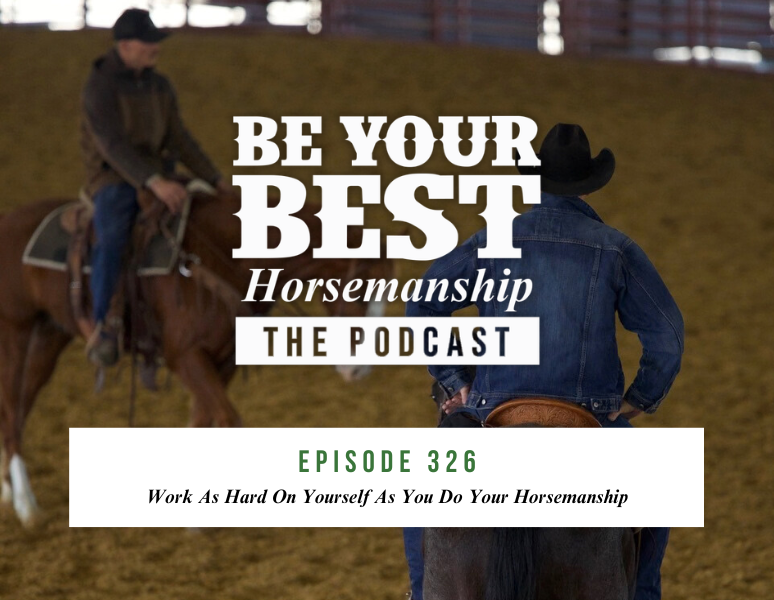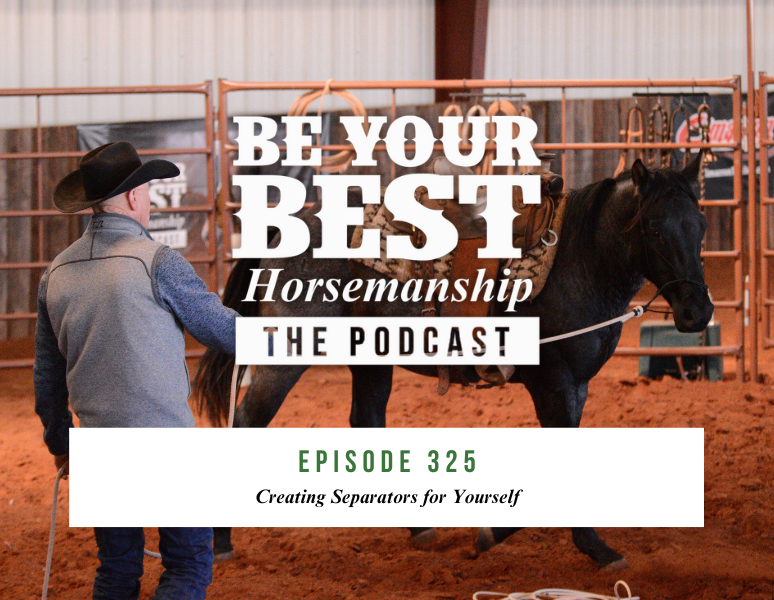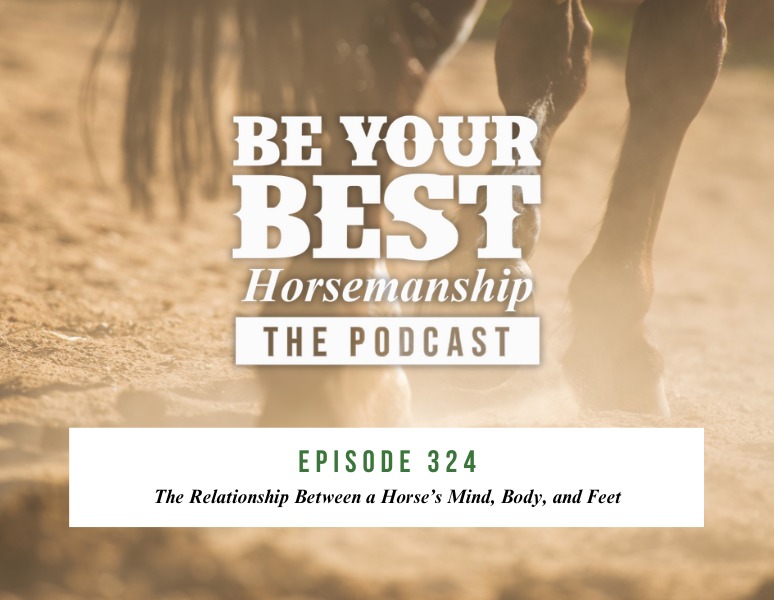Ep 172: Conversations with World Champion Tie Down Roper, Haven Meged
On this episode, I'm joined by the 2019 PRCA World Champion Tie-Down Roper, Haven Meged, to hear his perspectives on horsemanship, rope horses, and how he approaches his career as a full-time competitor and trainer.
Phil: To get started, give us a little background on you and where you started, and tell us about your progression through junior rodeos all the way up to where you are today.
Haven: I grew up in Miles City, Montana, on a ranch running about 500-600 head of cattle, so I've been around cattle and horses my whole life. Growing up, we roped outside a lot. We never really got to go into the arena and rope a bunch until I was around junior high age; that's when we kind of really started going a bit. I got to go to nationals in junior high, and then in high school, I won 11 state titles. I then went on to college in Western Oklahoma State College in Altus, Oklahoma for 2 years and then I transferred to Tarleton State University in Stephenville, Texas. I won the College Finals in 2019, which was also my rookie year in the PRCA, and I finished college in 2020. And now, I've been going back and forth between Montana and Stephenville, Texas…mostly because it’s hard to train a horse in a snowbank up there in Montana.
Phil: Being from Williston, North Dakota, which is about 100 miles from Miles City, it’s definitely a challenge to train horses full-time in that area. I think there’s a certain resiliency that comes with being from up North because of the harsh conditions that we deal with sometimes. Growing up in the north, it’s hard to be as prepared as ropers down here just because of geography and the climate. But, I've always thought that growing up in those training conditions has always been a big advantage to me because it taught me how to be tough. Would you agree?
Haven: Oh, 100%. I mean I tell kids all the time about how I used to drive 6 or 7 hours for no money added jackpot, just to get away from the house and get some runs in. It’s a totally different ballgame up there. You just don’t have the accessibility to horses and jackpots and training conditions to get those repetitions in. I would say 99% of the guys down south have a big advantage over us just because it’s so much easier to get the runs in. It’s hard to keep up, but it does build another level of resiliency. Most of the guys I know wouldn’t even think about roping in -10 degree weather, but there are some days when that’s as nice as it’s going to get for the next month for us. I’m thankful for the time I’ve spent in Montana and it’s been great, but being in Texas, it’s hard to get back up there once you’ve known it a different way.
Phil: Yeah, I know what you mean. So, the first time I met you, Haven, I believe was at our annual production sale a few years back. You came and rode a horse that was the featured horse in that sale and probably roped around six or seven calves on him, and I remember that night coming in the house telling my wife, “this kid is going to make a splash.” And, you didn't just make a little splash; you just went ahead and made a big splash right off the bat. Take us through that year in 2019 when you ended up winning the World Championship during your rookie year in the PRCA.
Haven: I wish I had the same mentality showing up at the finals last year as I did my rookie year. I really think I was just young and dumb, and I honestly didn't think I had a chance to beat Caleb Smidt to win the gold buckle. You know, my goal going out there was to win the average. I’d never been out there, so I really didn't know anything about what to expect; I just tried to make my run. I knew I had a pretty good shot in the average, but actually leading up to the NFR after the Canadian Finals, I was at a pretty slow pace because I got hurt. The doctors actually told me “there's no way you can rope out there” and I was like, “I don't care if I have one leg, I'm not turning out of my first NFR.”
Phil: Right, yeah I remember that. You know, we always talk about focusing on the journey and the task at hand. And because of the situation you were in with your injury, you were just taking care of one run at a time, and look what happened.
Phil: From your standpoint on the horses, what do you look for in a calf horse that gives you the opportunity to win at the highest level?
Haven: The three biggest things I look for are the size, the foot and the bone of a horse. They have to at least have that structural foundation to be able to take it out there on the rodeo road. To me, it really doesn’t even matter if they have a good mind before I get started with them; they’ve got to have the size to take it out there. Like my good mare, Beyonce, she’s actually pretty small, but she's real gritty about it. I always tell everyone if she wasn't a mare, she’d already fallen apart by now. But, those are the first three things I'll look at, and then I’ll just try to be around them, check out their personality, and you know get on them and see if they're hot or want to be collected. Just seeing what their natural demeanor is and if they are going to have the physical ability to get it done.
Phil: When you ride in the box, what do you need one to do to give you a chance to do your job?
Haven: I pretty much need them to stand there flat-footed when the gates bang and be honest, and then when it's go time, it doesn't matter if the calf is walking fresh or super fast, they need to be able to get to them and rate the cow and pay attention. It’s hard to find horses that can read all those different situations seamlessly, but there are those special ones out there that can get the job done. There’s definitely a lot of different factors to it, and it’s unique from what we look for in team roping or barrel racing horses, but at the end of the day, a great horse is a great horse.
Phil: Yeah, the calf roping is a different deal. Any time you leave the horse and they’re on their own to do their job, it takes a very special horse, both mentally and physically.
Haven: I agree 100%. And I mean, the times are changing. Everyone used to look for the big stops, and nowadays, a big stop is almost going to hurt you in some scenarios. The calves are smaller, the starts are quicker, and we have to tie those calves faster. We have to have those horses work with us to keep the calf standing so we can do our job as quickly as possible.
Phil: How important is it for your horse to help you set up a run?
Haven: First of all, I want my horse to be forgiving when I get to the calf. I like to be able to have my horse stay in there and give me one more jump while I'm in the stirrup so I can decide, “hey, if this calf steps right, I can do something with that slack. And if the calf steps left, I can do something different.” The timing of that horse stopping is everything. If your timing is off and your momentum is off, it’s going to be hard to win anything consistently. The better go your horse will give you, the sharper and better you’ll be, and ultimately, you’ll win more checks.
Phil: What does a day in the practice pen look like for you?
Haven: I don’t care if I have a gold buckle or not–there’s always something I can improve on. We rope just about every day, and we’re always looking for ways to get better. My fiancé, Shelby, is so great with a horse in the box, and we rope together every day, so I try to learn a lot from her. We have 40 head of horses, and they all get a day on / day off at our house. We usually ride 10 a piece each day. I know some people have different views on if the young ones need to be ridden every day or not, but we don’t like mashing on them too much. We want to keep them willing and wanting to put out effort, so an every-other-day routine achieves that for us.
Phil: Where do you get your horses and prospects?
Haven: I have a couple people that send horses my way, but I honestly find a lot of good ones on Facebook. Now, “good” and “great” are two different words to me, though. There are a lot of good horses out there, but the great ones are hard to make. And really, we have a lot of good ones who just need the time to become great. We have a few really great young horses at the house right now, and I’m really excited to see where they’ll be in a year or two.
Phil: You hit the nail on the head about the difference between good and great. I always say we’re living in a world where “pretty good” isn’t good enough anymore, and I think that’s especially true in the calf roping. It takes a special horse to be great in that discipline. It’s a matter of committing to the development of those horses and giving them the time they need to be great. To me, the maturity part is the biggest factor. Physically, these horses are so capable, but most of them need the time to mentally mature before they’re ready to hit the rodeo road.
Haven: Oh, I totally agree. 100%. I have one of the best young horses I’ve ever had right now physically, but the mental standpoint of this is, he’s a bit of a dragon. He’s muscled up and ready to go all the time. I just told Shelby the other day, it’s probably going to be his 6 year old year before we even think about taking him out on the road. Physically, he’s already there. But mentally, he’s going to need another year or two to mature. It’s hard to wait, but I feel like if we go slow, that horse is either going to make us famous or make us a lot of money.
Phil: Yeah, I had a friend tell me one time, “sometimes, they just need to be another year older.” And, I think that’s very true. If we’ll just be patient and give them the time, we can save ourselves a lot of time down the road because we gave them the time to mentally mature and enter into the rodeo world feeling confident. We don’t need to rush them along and destroy their confidence.
Haven: Exactly, and Shelby and I have a really great setup for building that mental side of these younger horses. Shelby can take them out and breakaway on them and haul them a bit before we move them into the calf roping pen, and that just takes a lot of pressure off the horses. By the time they get to that next step in their training and they’re ready for me to take them into calf roping, they’re already confident being on the road.
Phil: Talk a little bit about what you think the future of the horse industry and roping looks like.
Haven: You know, there’s a lot of team roping and barrel futurities out there, and I’d love to see something similar happening in the calf roping industry. Shane Hanchey and I are actually working on a similar system called Gold Buckle Futurities so that we can continue to grow our discipline at the pace of the rest of the events out there. I mean, you look at programs like the Riata Buckle and Royal Crown the incentives they have in place, and those industries have just exploded. I think the rope horse industry is only going to keep growing and evolving, and the value of the “really good” and “great” horses is going to remain high. There’s very few people out there that will spend the time to make those truly great horses, and people are starting to realize that time is worth a lot.
Phil: What do you do to keep yourself in competitive shape?
Haven: Day in and day out, it’s mostly just roping, riding, flanking and tying calves. By the end of each day, we’ve put in a lot of work, and that keeps me in a place where I feel physically able to do everything I need to do in a day. I’m a morning person, so I get up each day with my blood pumping and ready to get out there and put the work in. We really work hard to make sure our horses are not only working good, but also looking good, and we try to take care of business and make sure that any time someone pulls in, they’d want to buy a horse from us.
Request a topic for our next episode: philhaugenhorsemanship.com/podcast
Join the Be Your Best Insiders group: philhaugenhorsemanship.com/subscribe
If you enjoyed this episode, please share it and tag #beyourbesthorsemanship!
“Be Your Best Horsemanship” is brought to you by Silver Lining Herbs, Classic Equine, Martin Saddlery, Better Horses Network, Purina, Healthycoat, CINCH, Starbar, and Clarifly. These brands have been part of the Phil Haugen Horsemanship team for many years, and their products continue to play an integral role in the success of our performance horse training program. To support these brands, visit our Sponsors tab.




